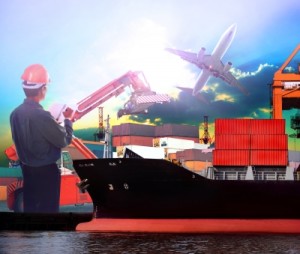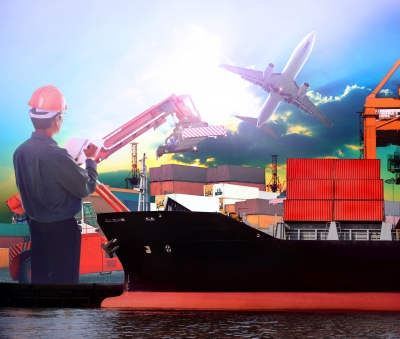 Customs Commissioner Alberto Lina is not keen on implementing a pre-shipment inspection (PSI) on containerized cargoes despite the practice already being conducted for bulk and break bulk cargoes.
Customs Commissioner Alberto Lina is not keen on implementing a pre-shipment inspection (PSI) on containerized cargoes despite the practice already being conducted for bulk and break bulk cargoes.
“With proper management and governance, we don’t need the pre-shipment inspection because our friends from the different chambers really opposed (the measure; for the amount of) money we’d pay for this inspection, we’d rather give the money to our own people,” Lina said during a Senate hearing called for on May 18 by the Committee on Ways and Means.
The proposal to extend BOC’s PSI program from bulk and break bulk to containerized cargoes was mulled under former customs commissioner John Phillip Sevilla’s watch. The private sector, including foreign chambers, opposed the measure on account of shippers bearing the cost of the PSI.
When Manila ports were hit by congestion last year, Sevilla decided to set the proposal aside.
PSI is the inspection of shipments from the country of origin to ensure they conform to the declared quantity and quality of goods, with value and tariff classification still with the BOC.
Former customs commissioner Rozzano Rufino Biazon, who attended the Senate hearing, said PSI was one of the proposals during his term as a “means of adding accountability.” He explained there were times when BOC would file cases against traders and importers would claim innocence while customs brokers would say the figure was supplied by the importer.
Asked how much revenue PSI would add to government coffers, Biazon said his personal assessment was 25% to 30%.
According to Tomas Drilon, general manager of BOC-accredited surveyor Intertek, the benefits of PSI, as proven by the six-year implementation with bulk and break bulk cargoes, include transparency and advanced information for BOC.
With PSI, data about the goods, such as amount and weight, are already confirmed, providing transparency, Drilon said.
As for trade facilitation, Drilon said part of the program’s incentives is the advance cargo clearance, which exempts importers from x-ray and physical inspection. Since shipments are pre-screened, Drilon said the program is cost-effective since it moves goods faster and bypasses other procedures that incur costs.
Fermin Barranechea III, country manager of BOC-accredited surveyor Cotecna, said that since the current PSI program excludes containers, most smuggling activities are now shifting to containers. For example, he said, rice, one of the most smuggled goods in the country, is now being shipped through containers from the previous mode of bulk and break bulk.
Under the draft PSI memorandum order released by BOC last year, one of the objectives of PSI was to curb technical smuggling and increase revenue generation while facilitating the release of imported articles.
Intertek’s Drilon said there are suggestions for voluntary implementation of PSI to see if BOC can deliver on the promised incentives. If customers see the benefit, then “naturally the businesses would gravitate” to the project.
Lina said if the surveyors allow a free one-month inspection, “then I’d agree (to) that (PSI).” He also asked surveyors to “guarantee a certain revenue” to be derived from the project.
Federation of Filipino Industries chairman Jesus Arranza said they don’t oppose the PSI so long as government pays the inspection fee.
Ships asked to put value of goods on manifest
During the same hearing, Lina said he plans to require foreign shipping lines to declare the value of goods on their manifests for immediate assessment of duties and taxes.
He explained there are “naughty importers” who change or underdeclare the value of their shipments once these enter the country.
He requested the help of Congress in convincing shipping lines that don’t agree with the proposal, as it does not fall under World Trade Organization/Revised Kyoto Convention rules.
Lina said declaring the value of goods is already being carried out for air freight. He added that “shipping lines can do it much better than the airlines” because they have more time to do this before the vessel arrives.
Sought for comment, Atty. Maximino Cruz, Association of International Shipping Lines general manager, told PortCalls he sees “the noble intentions of the Commissioner to enhance his anti-smuggling measures which we all support.
“It is actually an out-of-the-box idea which makes sense. His plan, however, to require shipping lines to state the value of goods in the cargo manifest has to be submitted to (AISL) member lines for discussion and deliberation,” Cruz said.
He explained that supplying the value of the goods on the manifest is “not an international shipping norm and will surely draw reaction from the home offices of the foreign lines.
“But let’s see how the discussion goes when the matter is put on the table during our membership meeting. It could be a tough call because it could shake up existing conventions in global shipping,” Cruz added. – Roumina Pablo
Image courtesy of khunaspix at FreeDigitalPhotos.net





